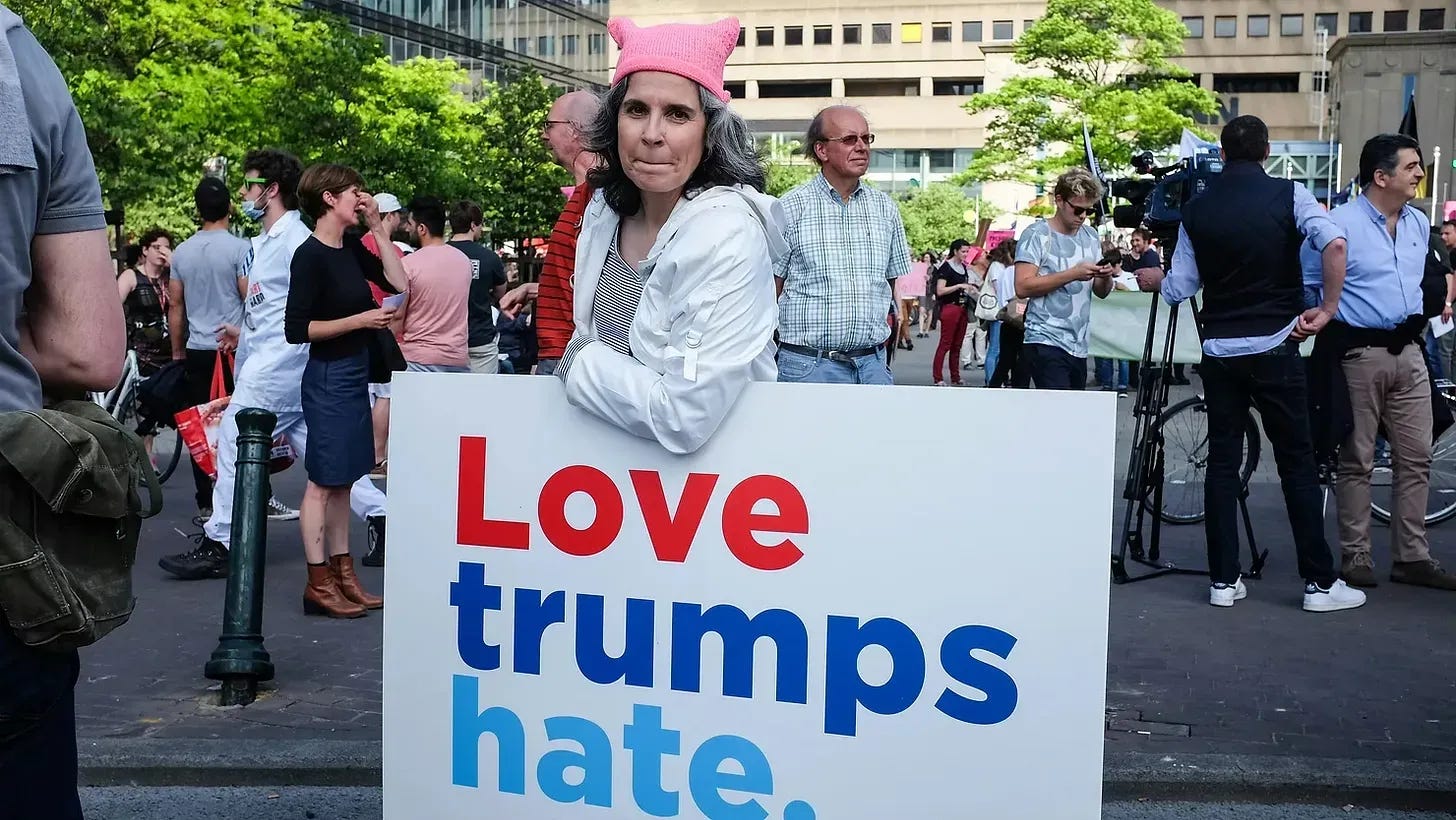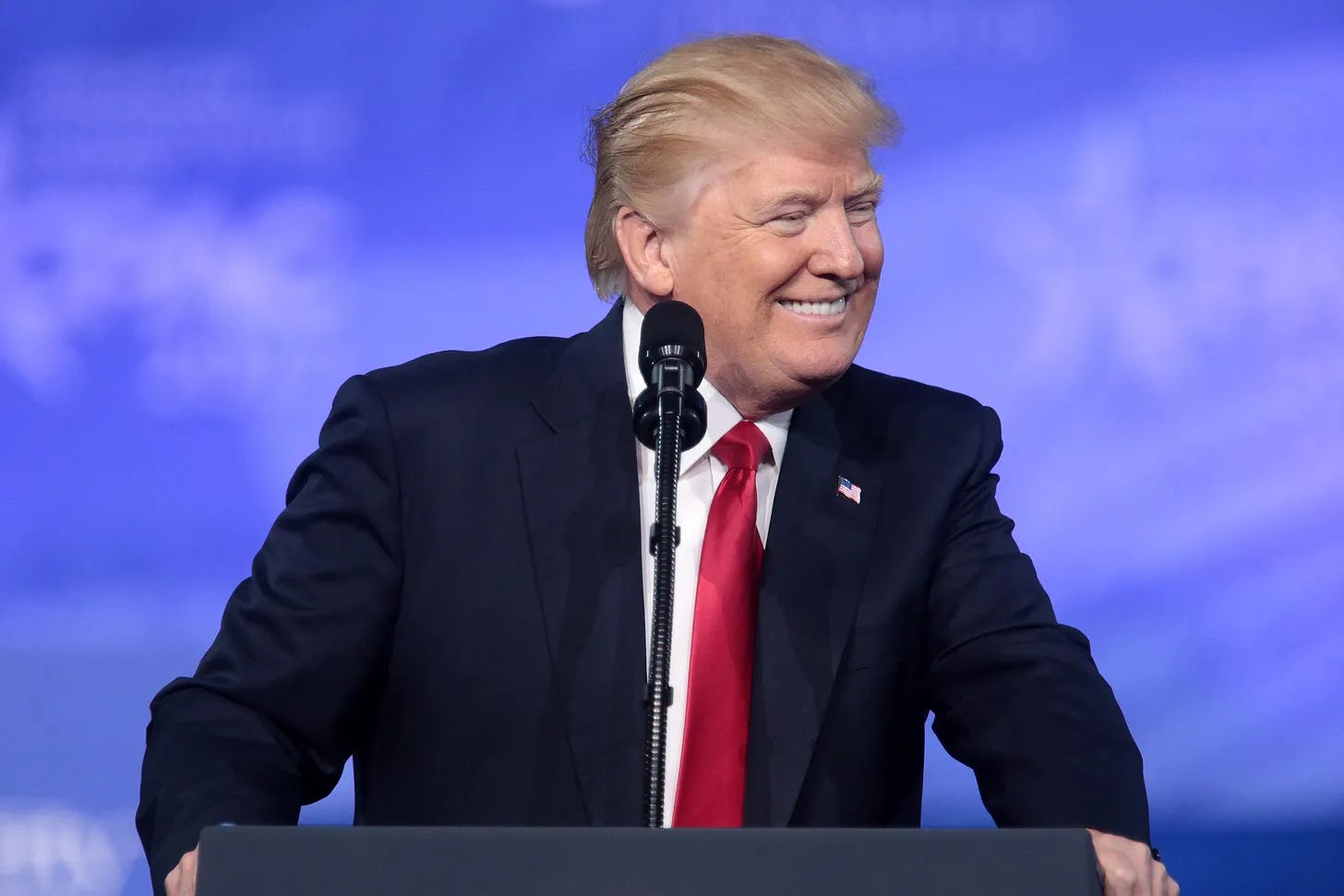Election 2024: The illusion of division hits a tipping point
For FAIR’s Substack, FAIR Executive Director Monica Harris writes about the path to bridging the political divide post-election.
Let’s seize this moment as an opportunity to turn the page on identity politics that have polarized our country, held us hostage politically, and concealed the illusion of division. Let’s send a message, loud and clear, to the people who have caricatured us, preyed on our fears, and destroyed our faith and trust in one another: We’re tired of fighting. We’re ready to move on and come together to save the home we all love.
What now? With the election behind us, here are five ways forward
For FAIR’s Substack, Angel Eduardo offers five ways forward to protect and preserve our republic.
The reality is that very few people are consciously attempting to make the world a worse place to live. Most people, most of the time, are doing what they believe is good, right, and just—or at least justifiable, given their goals. If you can’t see that, you aren’t looking hard enough.
I cried when Trump won. I won’t cry over elections anymore.
For The Washington Post, FAIR Advisor Shadi Hamid writes about how in a divided country, conflict is inevitable and can even be healthy.
When individuals get subsumed into partisan mobs, they can end up supporting policies and candidates that are not just misguided but morally objectionable — but as individuals they remain family, neighbors and colleagues who deserve the benefit of the doubt. Terms such as “fascist” or “white supremacist” should be reserved for the very small percentage of the population that are actually fascists or white supremacists.
Now Is the Time for Viewpoint Diversity to Shine
For her Substack BROADVIEW, FAIR Advisor Lisa Selin Davis offers personal reflections about the election results.
We can’t calmly take stock of our flaws when we perceive ourselves as being persecuted. And that’s where the viewpoint diversity movement could, and should, come in, to help us understand one another, to make people feel heard, rather than persecuted. We have to make policy based not just on one narrow vision of how things should be, but based on how things really are—the many different kinds of people, and the belief systems they hold, whom we live among.
Michael Shellenberger: Californians Finally Get Serious on Crime
For The Free Press, FAIR Advisor Michael Shellenberger writes about how on Tuesday, California voters voted for a return to normalcy and safety.
The revolt against progressive criminal justice policies has finally arrived—and with it, the promise that one of the worst humanitarian disasters in American history will eventually come to an end. The question now is, how quickly? Will the number of overdose deaths per year remain 100,000 for another decade? Or can we bring it down rapidly? Portugal and the Netherlands show how: by re-criminalizing hard drugs, prosecuting laws against nonviolent crimes, and mandating rehab as an alternative to prison.
What the Left Keeps Getting Wrong
For The Atlantic, Thomas Chatterton Williams argues that Democrats should not dismiss Trump’s win as the result of sexism and racism alone.
Reflexive responses like these exemplify the binary framing of culture and politics in the United States—white/nonwhite, racist/anti-racist—that ascended with the death of Trayvon Martin in 2012 and peaked after the racial reckoning of 2020. For many on the left, it has proved a powerful and compelling means of contextualizing enduring legacies of inequality and discrimination that are rooted in past oppressions. And it has notched real successes, especially by forcing the country to confront bias in the criminal-justice system and policing. But it has also become a casualty of its own discursive dominance—an intellectual and rhetorical straitjacket that prohibits even incisive thinkers from dealing with the ever-evolving complexity of contemporary American society. As a result, it has taught far too many highly compensated pundits, administrators, scholars, and activists that they never have to look inward.
A Historic Race
For Free Black Thought, Adrian Lyles advocates for seeing the reelection of Donald Trump as an opportunity for the nation to change how we think about race and racism.
What you are witnessing in the historic reelection of Donald Trump is not evidence that tens of millions of Americans are hateful bigots who want to exclude those who don’t have blonde hair and blue eyes. What you are seeing is the reflexive expression that the American public overwhelmingly rejects the idea that people should be chosen on the basis of their skin color. This is hard to see by many because race blinds and creates a thick veil, but the facts speak for themselves. Exit polls show that Trump did historically well among the federally recognized so-called racial and ethnic groups. Figure 1, from CNN, shows that Trump lost share among men racialized as white but gained share among so-called Asian, black, and Hispanic voters over his previous two runs. This suggests that Trump’s victory owes to an increasingly “raceless” sentiment among Americans to the effect that presidents and parties should not be chosen out of any sense of racial loyalty, and certainly not “white supremacy.”
FAIR News Podcast
For audio versions of our FAIR News and FAIR Weekly Roundup newsletters, subscribe and listen to FAIR News Weekly on Apple Podcasts, Spotify, Google Podcasts, or via RSS feed.
Join the FAIR Community
Join us, and become a member of FAIR.
Become a FAIR volunteer, or join a FAIR chapter.
Sign-up for a Welcome to FAIR Zoom information session to learn more about our mission.
Share your reviews and incident reports on our FAIR Transparency website.












